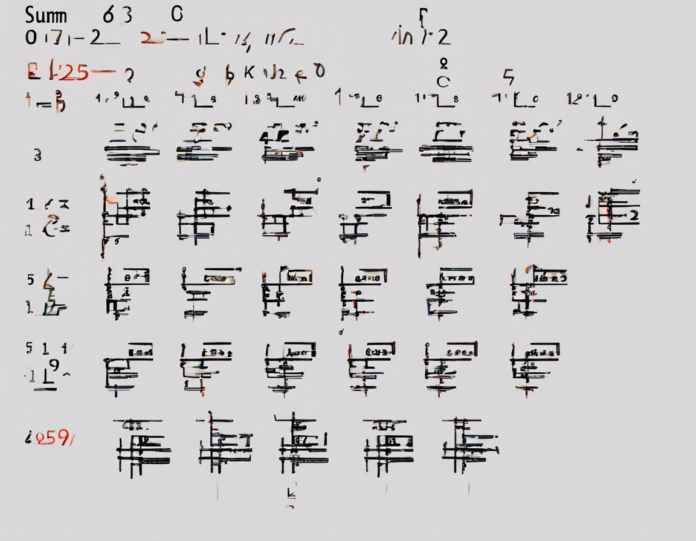There are several scenarios in the programming world where you might need to calculate the sum of digits in a number. This task is commonly encountered in coding challenges, mathematical operations, or data validation processes. In this guide, we will focus on how to achieve this in the C programming language.
Understanding the Problem
When we talk about calculating the sum of digits in a number, we are essentially looking to add up all the individual digits that make up the number. For instance, if we have the number 123, the sum of its digits would be 1 + 2 + 3 = 6.
Approach 1: Using a Loop
One of the most straightforward ways to calculate the sum of digits is by using a loop. Here’s a basic algorithm to achieve this:
- Initialize a variable to store the sum, let’s call it
sumand set it to 0. - Use a loop to iterate over the digits of the number.
- Extract the last digit of the number using the modulo operator (%) and add it to the
sum. - Update the number by removing the last digit (which is equivalent to integer division by 10).
- Repeat steps 3 and 4 until the number becomes 0.
Let’s implement this in C:
“`c
include
int main() {
int number = 123;
int sum = 0;
while (number != 0) {
sum += number % 10;
number /= 10;
}
printf("Sum of digits: %d\n", sum);
return 0;
}
“`
Approach 2: Using Recursion
Another way to calculate the sum of digits is by using recursion. Recursion is a technique in programming where a function calls itself to solve smaller instances of a problem. Here’s how you can implement this method in C:
“`c
include
int sumOfDigits(int number) {
if (number == 0) {
return 0;
}
return (number % 10 + sumOfDigits(number / 10));
}
int main() {
int number = 123;
int sum = sumOfDigits(number);
printf("Sum of digits: %d\n", sum);
return 0;
}
“`
Handling Negative Numbers
In the above implementations, we assumed that the number provided is a positive integer. If dealing with negative numbers, you can simply take the absolute value of the input before processing it. For example:
“`c
include
include
int main() {
int number = -123;
int sum = 0;
number = abs(number);
while (number != 0) {
sum += number % 10;
number /= 10;
}
printf("Sum of digits: %d\n", sum);
return 0;
}
“`
Frequently Asked Questions (FAQs)
-
Can the sum of digits algorithm handle decimal numbers?
No, the sum of digits algorithm works only with integers. You would need a different approach to handle decimal numbers. -
How do I calculate the sum of digits for a very large number in C?
For very large numbers that exceed the range of integer data type, you can store the number as a string and then iterate over the characters to calculate the sum. -
Is there a library function in C to calculate the sum of digits?
There isn’t a predefined library function for calculating the sum of digits in C. You will need to implement the logic yourself. -
Can I use the sum of digits algorithm for negative numbers without converting them to positive?
Yes, you can modify the algorithm to account for negative numbers by handling the negative sign appropriately during the digit extraction process. -
Are there any performance considerations when choosing between the loop and recursive methods?
Recursive methods may consume more memory due to function calls, so for very large numbers, the iterative approach might be more efficient.
In conclusion, calculating the sum of digits in a number is a fundamental task in programming that can be approached using various techniques in C. Whether you choose to use a loop, recursion, or handle special cases like negative numbers, understanding these methods equips you with the necessary skills to tackle a wide range of programming challenges.





